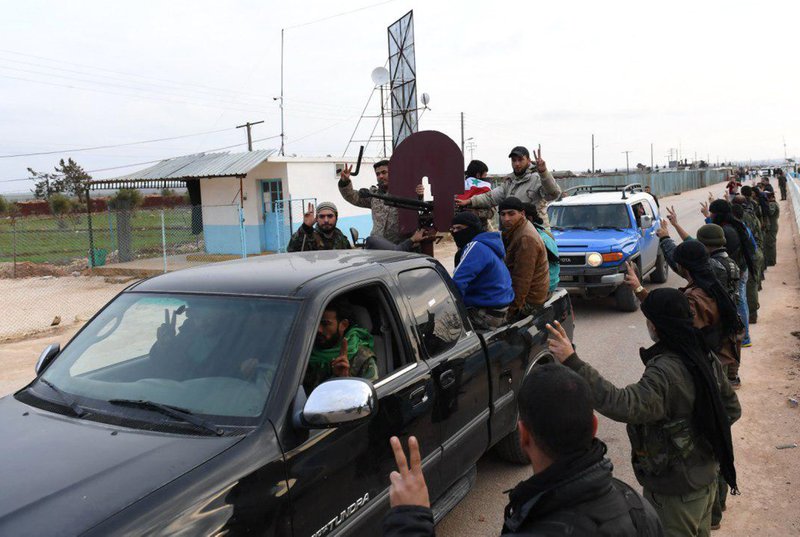BEIRUT -- Turkey's war on a Syrian Kurdish militia that is closely aligned with the United States is forcing the group to give up positions against Islamic State militants in the Syrian desert to defend against the advancing Turkish troops.
Ankara's go-it-alone campaign against the Kurdish People's Protection Units in a region called Afrin is reshaping military alignments in northern Syria and forcing the U.S. to pause its mop-up operations against pockets of the Islamic State extremist group.
But the U.S. is not supporting the defense of Afrin, and the Kurds are looking to Damascus for help, despite the Syrian government's pariah status in the international community.
Washington and many Western nations hold President Bashar Assad's government chiefly responsible for the civil war that has engulfed the country for nearly seven years and still shows little sign of abating. To date, Damascus is the only major player to send forces to defend Afrin.
[THE ISLAMIC STATE: Timeline of group’s rise, fall; details on campaign to fight it]
The move gives Assad particular leverage over the Kurdish self-administration at a time when global powers are jostling for influence in Syria.
"Afrin is in need of whoever can defend it," said Ilham Ahmed, a senior official in the Kurdish self-administration unit of northern Syria, which the Kurds call Rojava.
"We are ready for dialogue with the regime and to resolve our issues with them," she said.
The U.S. is naturally hesitant to enter into a military confrontation with NATO member Turkey, but White House officials may have underestimated the Kurds' determination to defend Afrin, says Mutlu Civiroglu, a Kurdish analyst in Washington.
"So many major political and military leaders of the Kurds are from Afrin, and Afrin, in the Kurdish heart and mindset, is an inseparable part of Rojava, Syrian Kurdistan," said Civiroglu.
Ahmed, a native of Afrin, said the Kurds have been "astonished" by the "global silence" in the face of the Turkish campaign.
Turkish President Recep Tayyip Erdogan's goals are unclear. The Kurds control a wide area of northern Syria, and his ambitions may be tempered by the possibility of reigniting a full-blown Kurdish insurgency inside his own country.
But his campaign has strained the relationship between the Kurds and Washington, something that Erdogan can point to as a success after three years of growing affinity between the two over Ankara's strenuous objections, said Nicholas Danforth, a Turkey analyst at the Washington-based Bipartisan Policy Center.
Turkey considers the People's Protection Units to be a "terrorist organization" and an extension of the outlawed Kurdistan Workers' Party, which has fought for Kurdish autonomy in Turkey.
On Thursday, Turkish forces took over Jinderes, a town in southern Afrin, removing a significant obstacle on the road to the region's largest urban center, which also is called Afrin.
The Britain-based Syrian Observatory for Human Rights monitoring group said more than 1 million civilians face an "unknown fate" as Turkish forces neared a siege of the city.
The city is heaving with hundreds of thousands of Syrians who have been displaced by fighting in the countryside or violence in other parts of the country. Nearly 200 civilians have been killed by Turkish shelling and airstrikes since Ankara began what it calls "Operation Olive Branch" six weeks ago.
A Section on 03/10/2018

